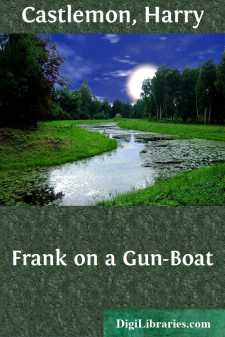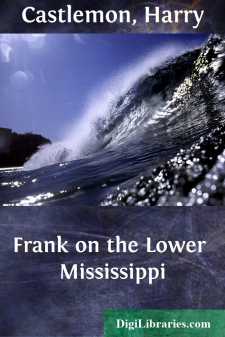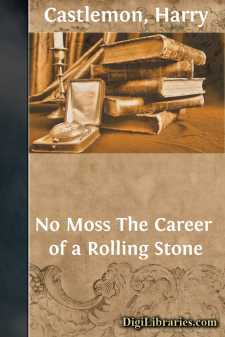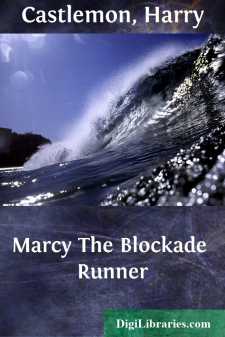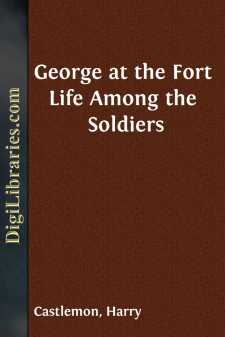Categories
- Antiques & Collectibles 13
- Architecture 36
- Art 48
- Bibles 22
- Biography & Autobiography 813
- Body, Mind & Spirit 142
- Business & Economics 28
- Children's Books 17
- Children's Fiction 14
- Computers 4
- Cooking 94
- Crafts & Hobbies 4
- Drama 346
- Education 46
- Family & Relationships 57
- Fiction 11829
- Games 19
- Gardening 17
- Health & Fitness 34
- History 1377
- House & Home 1
- Humor 147
- Juvenile Fiction 1873
- Juvenile Nonfiction 202
- Language Arts & Disciplines 88
- Law 16
- Literary Collections 686
- Literary Criticism 179
- Mathematics 13
- Medical 41
- Music 40
- Nature 179
- Non-Classifiable 1768
- Performing Arts 7
- Periodicals 1453
- Philosophy 64
- Photography 2
- Poetry 896
- Political Science 203
- Psychology 42
- Reference 154
- Religion 513
- Science 126
- Self-Help 84
- Social Science 81
- Sports & Recreation 34
- Study Aids 3
- Technology & Engineering 59
- Transportation 23
- Travel 463
- True Crime 29
Frank on a Gun-Boat
by: Harry Castlemon
Description:
Excerpt
FRANK ON A GUN-BOAT.
CHAPTER I.
In the Navy.
"Well, Frank, did you bring home the evening's paper?" inquired Mrs.
Nelson, as her son entered the room where she was sitting.
"Yes, ma'am. Here it is!" answered Frank, producing it. "But there is no news in it. The Army of the Potomac has not moved yet. I don't see what makes them wait so long. Why don't McClellan go to work and thrash the rebels?"
"You must remember that the rebels have about as many men as we have," answered his mother. "Perhaps, if McClellan should undertake to 'thrash' the rebels, as you say, he would get whipped himself"
"That makes no difference," answered Frank. "If I was in his place, and the rebels should whip me, it wouldn't do any good, for I'd renew the battle every day, as long as I had a man left."
It was toward the close of the first year of the war, during the "masterly inactivity" of the Army of the Potomac. For almost eight months McClellan had been lying idle in his encampment, holding in check that splendid army, which, with one blow, could have crushed out the rebellion, and allowing the rebels ample time to encircle their capital with fortifications, before which the blood of loyal men was to be poured out like water. The people of the North were growing impatient; and "On to Richmond!" was the cry from every part of the land.
From the time Fort Sumter had fallen, Frank had been deeply interested in what as going on. The insults which had been heaped upon the flag under which his grandfather had fought and died, made the blood boil in his veins, and he often wished that he could enlist with the brave defenders of his country. He grew more excited each day, as the struggle went on, and the news of a triumph or defeat would fire his spirit, and he longed to be standing side by side with the soldiers of the Union, that he might share in their triumphs, or assist in retrieving their disasters.
He was left almost alone now, for many of the boys of his acquaintance had shouldered their muskets and gone off with the others; and that very day he had met Harry Butler, who had enlisted as a private, wearing the uniform of a lieutenant, which he had won by his bravery at Fort Donelson.
He had never said one word to his mother about enlisting, for he was an only son, and he dreaded to ask her permission. But that mother's quick eye easily read what was going on in her son's mind. She had Puritan blood in her veins; her ancestors had fought in the war of the Revolution, and she had resolved that, if Frank wished to go, she would give her full consent. A mother's heart alone can tell the struggle it had cost her to come to this determination.
"I've got a letter from Archie, also," said Frank.
His mother took it from his hand, and read as follows:
Portland, March 18, 1862.
Dear Cousin:
I am about to tell you something which you will call strange news. Father has at last given his consent to my going to war, provided you will go too. He says that if I go, I must have you with me, to take care of me, and keep me straight....


